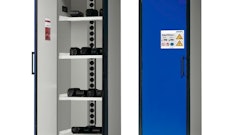If you have at least one employee, you’re responsible for payroll taxes. These include withholding federal (and, where appropriate, state) income taxes and FICA tax from employees’ wages as well as paying the employer share of FICA tax and federal and state unemployment taxes. The responsibility is great and the penalties for missteps make it essential that you do things right.
1. Misclassifying workers
Perhaps the hottest audit issue today is misclassifying workers. There’s incentive to treat workers as independent contractors rather than employees because payroll taxes and employee benefit costs are high; a company’s only tax responsibility for an independent is issuing a Form 1099-MISC if payments in the year are $600 or more.
You don’t have the freedom to select the label for the worker; classification depends on whether you have sufficient control over the worker. This essentially means having the right to say when, where, and how the work gets done. Having an independent contractor agreement is helpful in showing that you and the worker do not intend any employer-employee relationships, but it doesn’t bind the IRS, who is not a party to the agreement.
Find information about worker classification from the IRS. When in doubt, consult your tax advisor.
2. Not using an accountable plan for employee reimbursements
If you normally pay for travel, entertainment, tools or other business costs for employees, you’re wasting employment tax dollars if you don’t use an accountable plan. With this arrangement, you deduct the expenses but avoid all payroll taxes on reimbursements; employees do not have any income from reimbursements.
To be an accountable plan, the employer must formalize the arrangement and set reasonable times for action (the following times are reasonable to the IRS but you can adopt shorter time limits for action):
- The reimbursable expense must be business related.
- Advances cannot be made before 30 days of the expense.
- Employees must account for the expenses within 60 days of the expense.
- Employees must return excess reimbursements to the employer within 120 days of the expense.
Find details on accountable plans from the IRS.
3. Failing to keep payroll records
You are required to maintain payroll records and have them available for IRS inspection. These include time sheets, expense accounts, copies of W-2s and other payroll records. Usually, you should keep information for at least four years.
You should also retain copies of Forms I-9 , which shows an employee’s eligibility to work in the U.S. States may also have certain hiring forms that should be retained (e.g., E-verify forms). Details about retaining I-9s can be found at the U.S. Citizenship and Immigration Department.
4. Choosing to pay creditors before the IRS
When a business gets into a cash crush, it may be tempting to pay the landlord, vendor, or utility company before the IRS; don’t! As a business owner, you are a “responsible person” who remains 100% personally liable for “trust fund” taxes (amounts withheld from employees’ wages). This is so even if your business is incorporated or is a limited liability company.
Best strategy: Set aside cash to cover payroll taxes so you won’t use these funds for any other purpose. Find more information about the trust fund recovery penalty from the IRS.
5. Failing to monitor payroll company activities
Many small businesses use outside payroll companies to handle the job of figuring withholding as well as transferring funds to the U.S. Treasury to cover payroll taxes. However, some of these companies may not do their job, by error or intentionally. As an employer, even if you use an outside payroll company you remain responsible for payroll taxes.
Best protection: Monitor your tax account to see that funds are being deposited on time and in the correct amount. If deposits are made electronically using EFTPS.gov, you can easily see activities in your account.
Conclusion
Stay on top of your employer responsibilities to avoid any penalties or entanglements with the IRS, the Department of Labor, or your state’s agencies.
Article originally appeared on SBA.gov.
Barbara Weltman is an attorney, author with such titles as J.K. Lasser's Small Business Taxes, J.K. Lasser's Guide to Self-Employment, and Smooth Failing as well as a trusted professional advocate for small businesses and entrepreneurs. She is also the publisher of Idea of the Day and monthly e-newsletter Big Ideas for Small Business and host of Build Your Business Radio. She has been included in the List of 100 Small Business Influencers for three years in a row. Follow her on Twitter: @BarbaraWeltman.


























